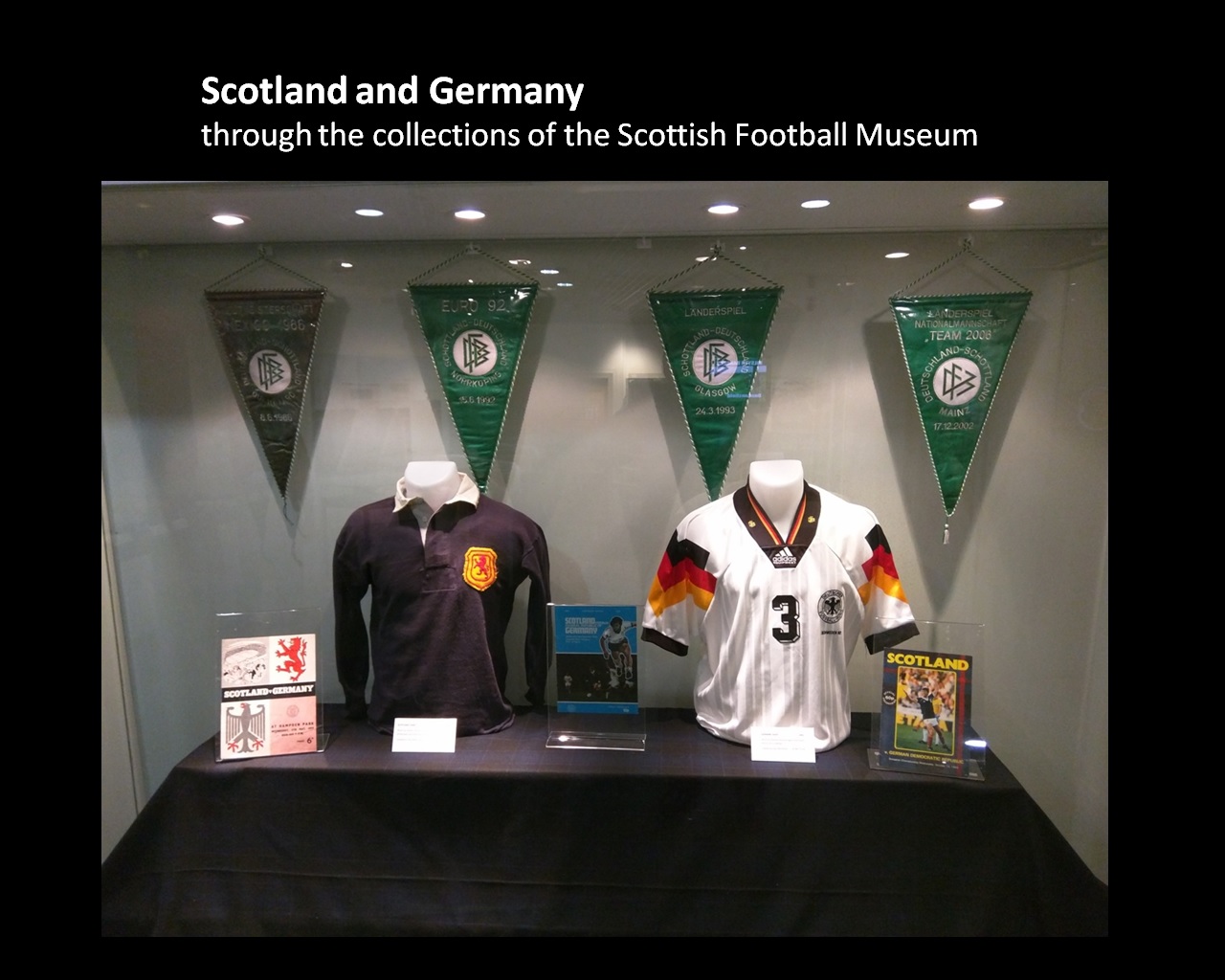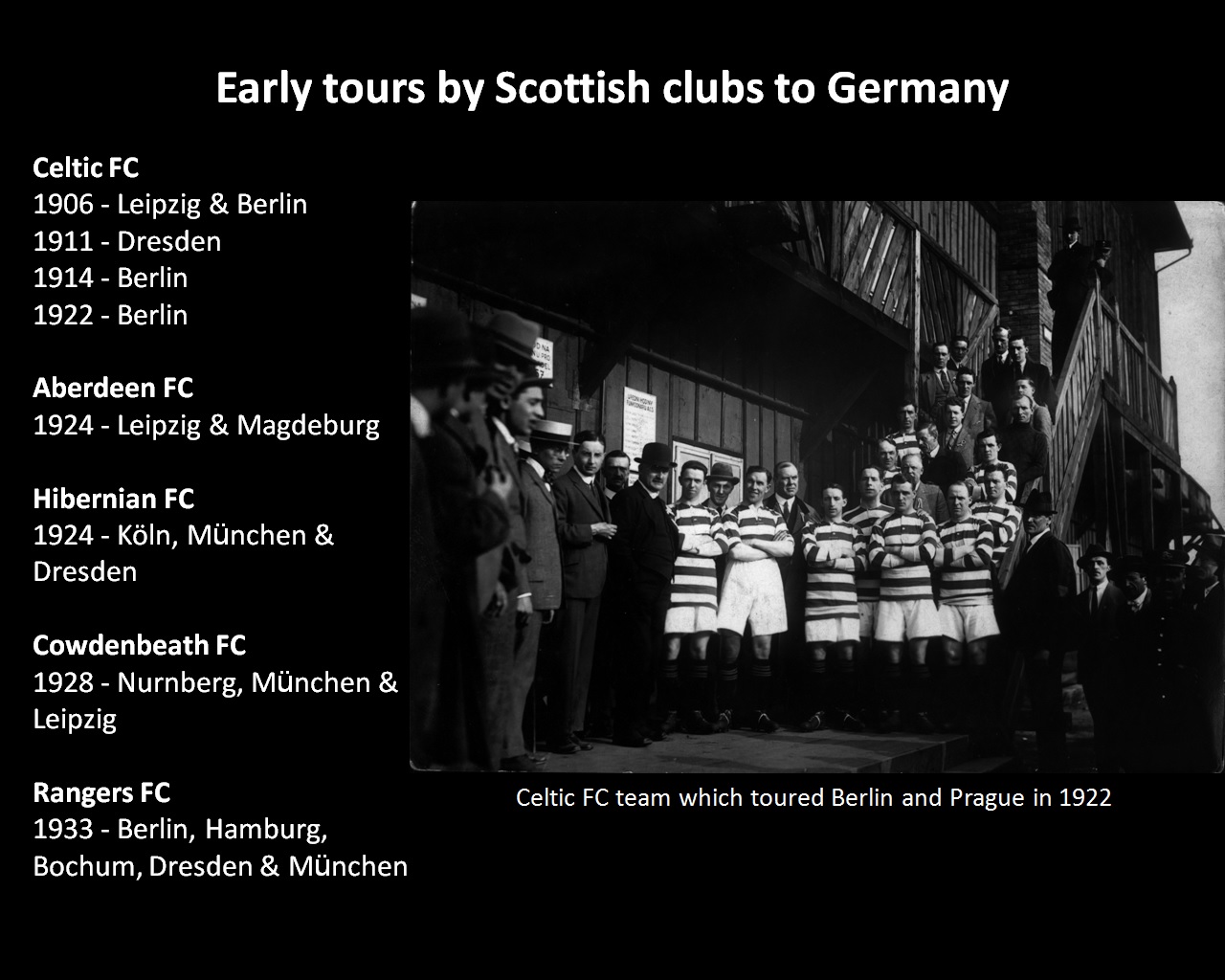By Grant Jarvie
It may have been a spirited 3-2 on the pitch but the morning after Scotland v Germany European Championship qualifier the National stadium hosted another event that examined not only Scotland and Germany ‘s footballing links but also how other countries are using sport to create influence on and of the pitch.
On September 8th the Centre for Cultural Relations and the Academy of Sport joined forces to hold a workshop entitled:
“Scotland and Germany: The Future for Sport, Cultural Relations and International Development “
The workshop was funded by the Scottish Government and kicked of a series of events that focused upon Scotland and Germany. The event was also supported by the National Football Museum at Hampden Park.
Richard McBrearty of the National Football Museum briefed those present on the history of Scotland V Germany. Scotland’s first tour of Europe involved a match against Germany in 1929; the teams have played 17 times between 1929-2015 with Germany winning 8, Scotland 4 and 5 being drawn.
 Between 1906 and 1933 Celtic, Aberdeen, His, Rangers and Cowdenbeath all toured Germany.
Between 1906 and 1933 Celtic, Aberdeen, His, Rangers and Cowdenbeath all toured Germany.
The hosting of the 2006 FIFA World Cup in Germany was supported by the Scottish Football Museum who helped to transport the world’s oldest football as part of the 2006 Hamburg FIFA World Cup exhibition.
Yet the 2006 World Cup won by Germany was significant for other reasons. It highlighted the significance of long term planning if cities and countries were going to use the hosting of major sporting events to improve their image.
The Arnholt-Gfk Roper Nations Brands index, which measures external views of countries, showed that Germany went from seventh place in 2004 to first place in 2007 and remained in second place in 2011. The 2014 results showed Germany back in first place and Scotland in 17th place. Sporting excellence was a factor widely cited as working in Germany’s favour.
Long term planning and a cost effective model of delivery were some of the factors, acknowledged by Bridget McConnell that contributed to a successful Glasgow Commonwealth Games.
Having played for Frankfurt, Glasgow ladies, Scotland and Germany Katarina Lindner championed the positive contribution that women’s football was having not just in Glasgow but that different forms of football might be needed to attract different segments of the community into the game.
Having a football team in a city certainly helps to position a city and country. A fact that was evidenced by Professor Jon Oberlander from the University of Edinburgh who cited examples of Manchester, London, Liverpool, Oxford and Glasgow as cities whose social media profiles and volume of twitter traffic were all influenced by having football teams and or hosting major sporting events in the city.
In a month when Louise Martin was elected Chair of the Commonwealth Games Federation the audience at Hampden Park were reminded that Scots and those leading Scottish sporting institutions are creating influence within sport and through sport. Louise Martin, Stewart Regan and Sir Craig Reedie are but three sports administrators working in an extremely competitive international arena.
Having taken over from Lord Coe as, Chair of the International Inspiration Programme, Sir Martin Davidson, cited the fact that this programme reached 25 million children and young people in 19 countries. The significant role that Scottish sport had to play in international development was acknowledged by Humza Yousaf Minister for Europe and International Development who opened the event organized by the University of Edinburgh’s Academy of Sport and Centre for Cultural Relations.
An ever-increasing number of countries are using sport as a vehicle for cultural relations, diplomacy and international development. The Australian Government has a specific 2015-18 sports diplomacy strategy. It has suggested that 3% of GDP should be invested in 4 pillars of diplomatic activity through sport – Connecting people and institutions; enhancing sport for development; showcasing Australia and supporting innovation and integrity.
In 2018 Glasgow will co-host a multi-sports event with the city of Berlin. Football clubs from both Scotland and Germany have called for support to be given to refugees. Sporting events like the Scotland V Germany match provide opportunities for not just football but civil servants, ambassadors, governments, cultural agencies and foreign diplomats to meet and do business.
If football can make a broader contribution then why shouldn’t cities, countries and diplomats use it as tool not just to create influence but to make a contribution to the world being less tense and better place.


